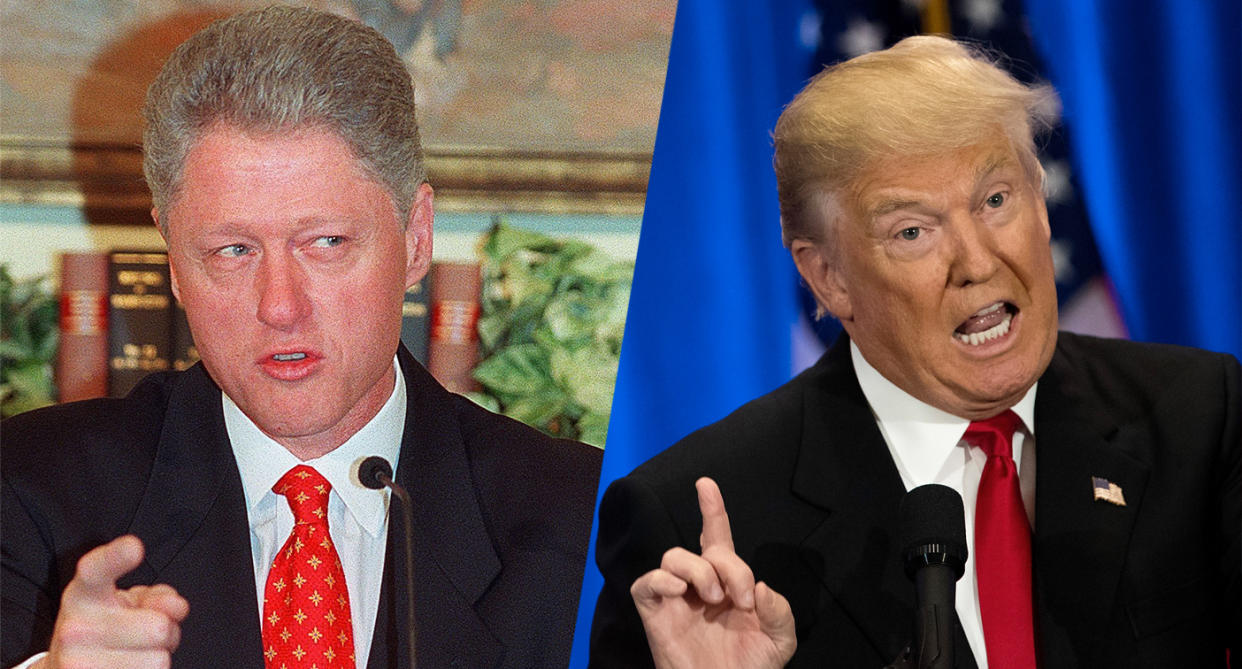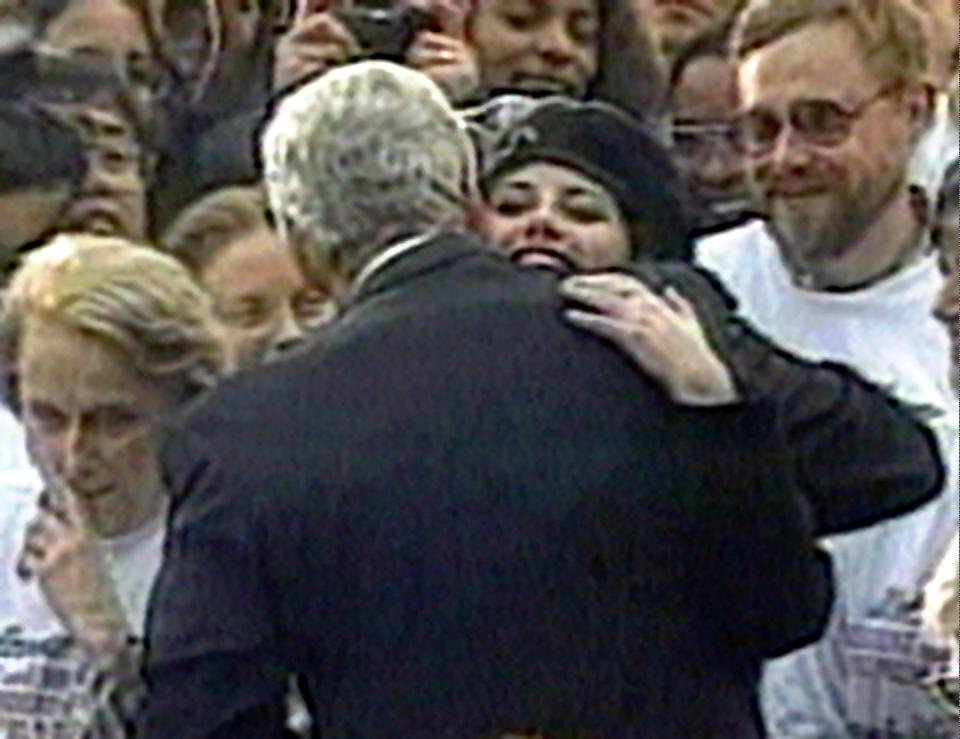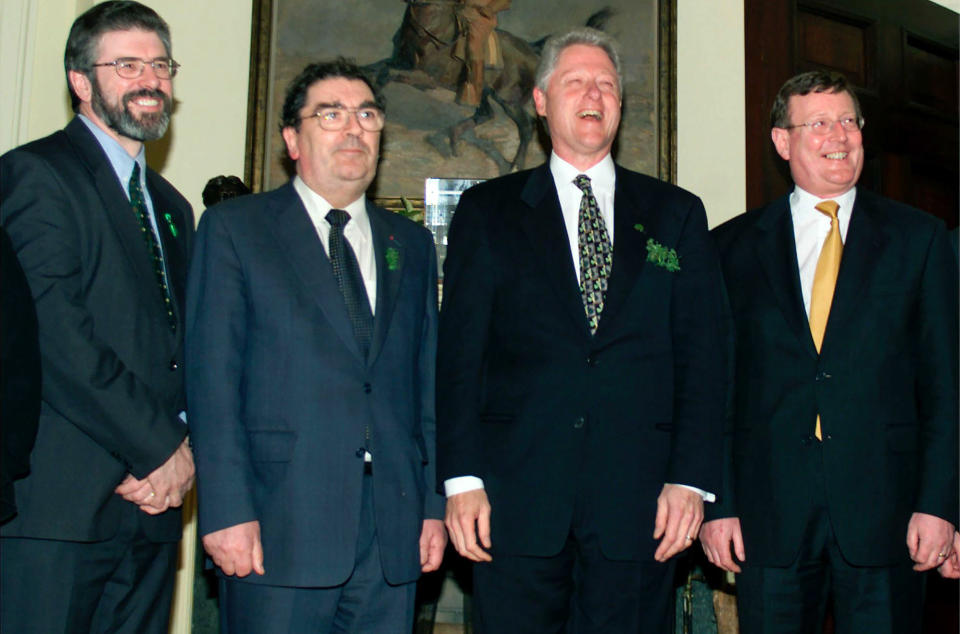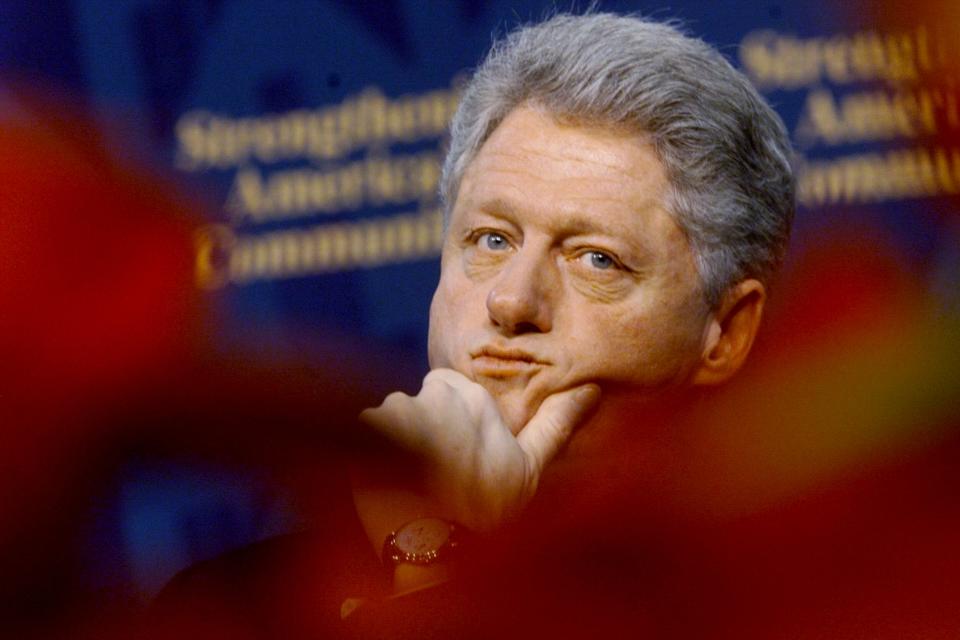Trump should follow the Bill Clinton scandal playbook

One of the last people Donald Trump would likely emulate — crisis or no crisis — is Bill Clinton. During the 2016 campaign, Trump attacked Clinton as “the single greatest abuser of women in the history of politics,” called the Clinton Foundation a wellspring of corruption and said Hillary Clinton should be jailed over her email practices as secretary of state. But with the naming of Robert Mueller as special counsel to investigate any Trump administration role in Russian interference in the election, and with even Republicans quietly now talking about “obstruction of justice” and invoking Watergate analogies, Trump has an unlikely model for how to survive an existential threat to his presidency: Bill Clinton.
To be sure, l’affaire Lewinsky was hardly comparable to the allegations swirling around Trump. Clinton’s scandal was ultimately about sex — and lying about it under oath. Trump’s hydra-headed scandals are about his campaign’s ties to Russian interests, his own pro-Russian statements and actions, his firing of FBI Director James Comey and alleged efforts to persuade Comey to drop the investigation into former national security adviser Michael Flynn.
Bill Clinton not only survived because the charges against him were partisan-driven and focused on sexual misconduct, he thrived in his last two years in office because he left much of his scandal-related defense to his lawyers and political aides. Most importantly, Clinton focused on his job. In his nationally televised admission that he had had a sexual relationship with Monica Lewinsky, Clinton reminded Americans that “we have important work to do, real opportunities to seize, real problems to solve, real security matters to face.” He ended with a high-minded plea “to repair the fabric of our national discourse and to return our attention to all the challenges and all the promise of the next American century.”

In short, Clinton vowed that he would govern. That speech got “panned,” as aide Rahm Emanuel told him shortly afterward. But, as Jeffrey Toobin wrote in his book about Clinton’s impeachment, “the press rejected the speech; the public embraced it.” The public mostly accepted Clinton’s apology and embraced his effort to distinguish his private failures from his public actions. His subsequent focus on policy and tying of his public acts to the national interest helped him survive impeachment and rack up a series of policy achievements.
While independent counsel Kenneth Starr’s inquiry barreled forward, and as impeachment proceedings commenced, Clinton focused on the public business of leading the country. Clinton survived his yearlong crisis by “compartmentalizing” and focusing on the policies and issues that would improve people’s lives. Clinton did the work that the people had elected him to do, and he did not respond publicly to every latest assault on him, tempted as he surely was, during the impeachment saga.
Although Trump seems incapable of compartmentalizing in this way, it may be one of the few things he can now do to maintain his already slim levels of public support and stay in office. Clinton’s survival was not preordained. Against the drama of a semen-stained blue dress and impeachment talk in 1998 and early 1999, Clinton signed the Good Friday Agreement that brought peace in Northern Ireland. He helped secure funding for his initiative to hire more teachers and reduce class sizes, expanded Head Start and affordable child care, signed the Kyoto global warming agreement, and ordered airstrikes against Iraq’s weapons facilities, to name just a few of his achievements. Mere days after House Republicans voted to impeach him, Clinton underscored his governing strategy in remarks at a Housing and Urban Development grant announcement in Baltimore. Clinton’s micropolicy strategy of championing discreet solutions to select public problems paid dividends, both substantive and political.

“If we ever forget that what we have in common is far more fundamental than all these things that we differentiate among ourselves, we have forgotten the most important thing,” he said. “We accept today we are nowhere living up to our ideals. But we recognize that we have to move closer. … So we want America not only to be a rich country but one where everybody has a place at the table.” As he was being impeached, Clinton recorded his highest approval rating of his presidency — 73 percent. Clinton benefited from the overreaching of his Republican foes, as Democrats defied the history of midterm elections and picked up congressional seats in 1998 amid the GOP’s impeachment drive.
Trump was elected because (among other reasons) he had insisted that he could make America great again. That meant, he vowed, bringing good jobs to struggling white, working-class families, replacing bad trade deals with good trade deals, and making health care more affordable while protecting Social Security and Medicare. These kitchen-table issues have been almost completely absent from the 100-plus days of his presidency. Rather than governing with a laserlike intensity on economic revitalization for his core voters, Trump has primarily been consumed with his own image. He refuses to let any attacks on him slide, wielding his Twitter feed as if it were a reusable battering ram. Whatever Trump does, he may not be able to save himself. But he may have a chance to hold on if he can copy a bit of Clinton’s disciplined ability to avert scandal talk and champion the issues that affect people’s daily lives.

___
Matthew Dallek, associate professor at George Washington University’s Graduate School of Political Management, is author of “Defenseless Under the Night: The Roosevelt Years and the Origins of Homeland Security.”
Read more from Yahoo News:

